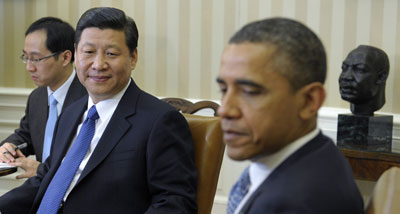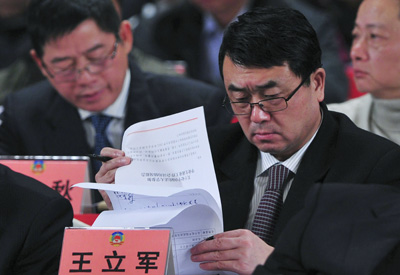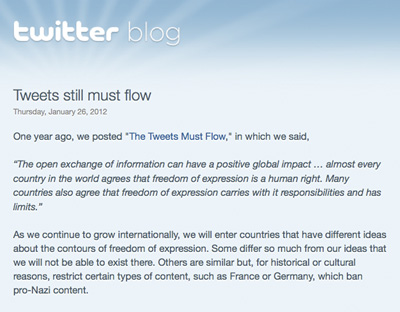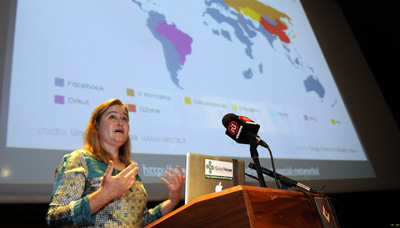China
2012
Attacks on the Press in 2011: China
Authorities blocked reporting of unrest occurring around the world, from Inner Mongolia to the Occupy movement. More than half of the 27 journalists imprisoned on December 1 were from Tibet and Xinjiang, reflecting crackdowns after earlier unrest in minority regions. After online calls for Arab Spring-style demonstrations, dubbed the Jasmine revolution, CPJ documented the worst…
In China, journalists attacked while covering land dispute
New York, February 16, 2012–The Committee to Protect Journalists is disturbed by a series of violent attacks on international journalists that appear aimed at suppressing coverage of land-related protests in Panhe, in eastern China’s Zhejiang province.

Archaic media policies make China a poor partner
President Obama has promised to raise issues of human rights when he and his administration meet with Chinese Vice President Xi Jinping in the next day. After that, Xi, billed as China’s next leader, is expected to make some speeches, visit a few factories, stop at the Pentagon, sign some contracts that will strengthen economic…

In high-tech China, low-tech media control works too
China’s investment in high-tech Internet surveillance technology is well known, and the byzantine rules of its Central Propaganda Department have inspired books and academic treatises. But among the many tools in the box for media control, there’s one that’s very simple and low-tech: Keep journalists away.

Chinese media little help with Chongqing mystery
The website of Xinhua News, China’s state media flagship, leads today with EU’s threats of sanctions against Syria. Elsewhere on their Chinese-language site, one can read about Wen Jiabao’s remarks to the visiting Canadian prime minister, or look at photos of pretty white ladies lounging around, if that’s your style.

Can selective blocking pre-empt wider censorship?
Last week, Twitter provoked a fierce debate online when it announced a new capability–and related policy–to hide tweets on a country-specific basis. By building this feature into its website’s basic code, Twitter said it hoped to offer a more tailored response to legal demands to remove tweets globally. The company will inform users if any…

Does the Internet boost freedom? We decide, book says
The Internet doesn’t bring freedom. Not automatically, anyway. That’s one of the main messages of Rebecca MacKinnon’s new book, Consent of the Networked, which had its New York launch at the offices of the New America Foundation last night. In a conversation with CNN managing editor Mark Whitaker, MacKinnon, a CPJ board member, said it’s…